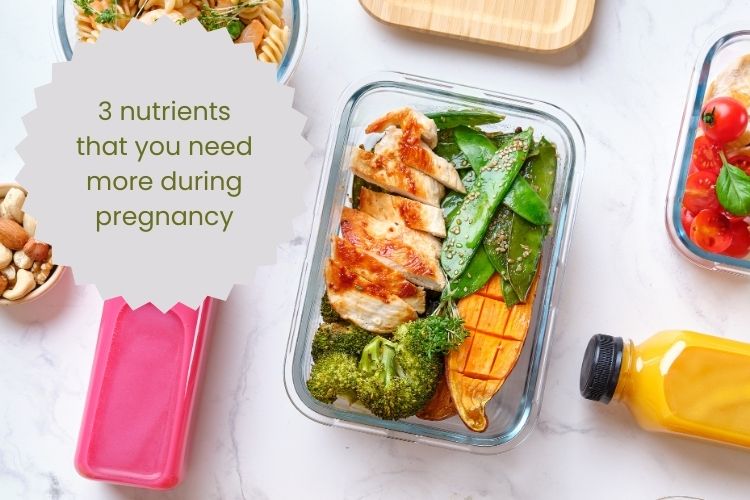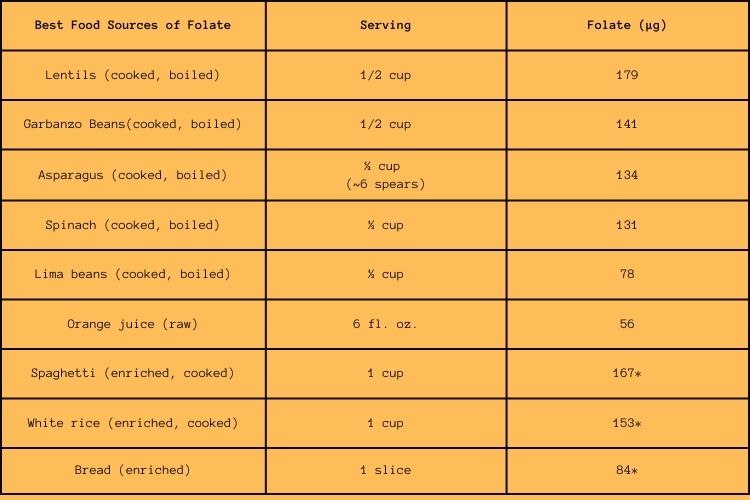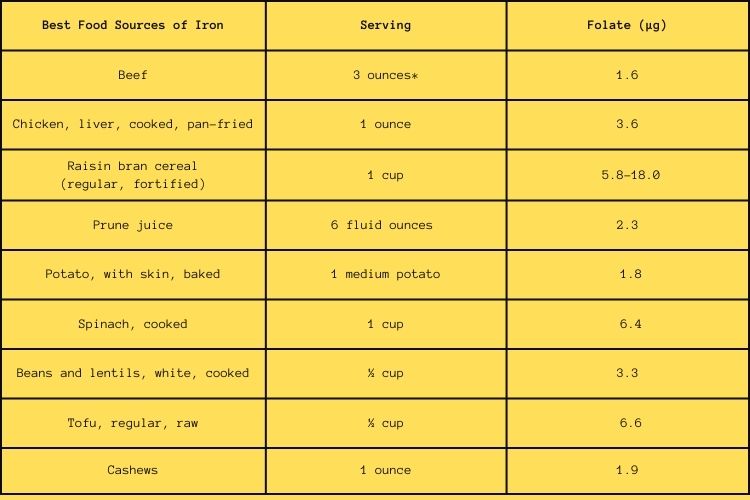3 Nutrients That You Need More During Pregnancy

Pregnant women need to eat a variety of nutrient-rich foods to support their baby’s growth and development. Some of the most important nutrients for pregnant women include:
1. Folate: Folate is a B-vitamin that helps prevent neural tube defects, such as spina bifida. Folic acid is the major synthetic. Folic acid, has no biological activity unless it is converted to folates, is a form found in fortified foods and vitamin supplements. Daily recommended intake for folic acid is 400 micrograms(µg) for women. However, pregnant women should take 600 micrograms of folic acid every day since their needs increase by 50% during these periods. Folic acid supplements can be toxic and lead to neurologic disorders if taken in high amounts. Therefore, folic acid supplementation should be limited to 1000 µg/day. Main sources of folate including green leafy vegetables, fortified grains, legumes and citrus fruits are excellent sources of dietary folate. Table 1 includes best food sources of Folate.
Table 1

Prenatal supplements usually include 1 mg of folic acid which is sufficient and more than 1 mg is not recommended. Read my [prenatal checklist blog] (https://www.dietitiannewyork.com/prenatal-vitamin-checklist/)post for more information!
- Iron: Iron is important for carrying oxygen to your baby. Pregnant women need to consume about 27 milligrams of iron every day whereas adult females only need 18 mg iron in a day.
Table 2

3. Protein: Adequate protein intake is essential during pregnancy for so many reasons including expanding the blood volume for growing the fetus, creating maternal tissues and building muscles and bones. Recommended daily intake for pregnant women increased by ~40% = 1.1g/kg during pregnancy.
We recommend consuming daily 6-8 oz of lean protein including chicken, beef and seafood, eggs, legumes, beans and peas, nuts, and peanut butter.
If you are vegan or vegetarian nutritional yeast is a great option to meet protein intake with bonus B-complex vitamins! You can add to your soup, salads or pasta as a sub for parmesan cheese!
This blog provides general information and discussions about health and related subjects. The information in this or other posts are not intended to give you medical advice or should not be substituted with medical advice. Please see your health care provider for individualized treatment plans and recommendations.
If you are expecting, feel free to join my FB group where we share our current and previous experiences with other mom-to-be’s!
Stay healthy and shine with your baby!
Love,
Prenatal Registered Dietitian
Let’s connect: Instagram @dietitianny; Twitter @dietitianny; Facebook @MerveCiray
 Subscribe to receive my FREE Nutrition for Eating Out Guide!
Subscribe to receive my FREE Nutrition for Eating Out Guide!